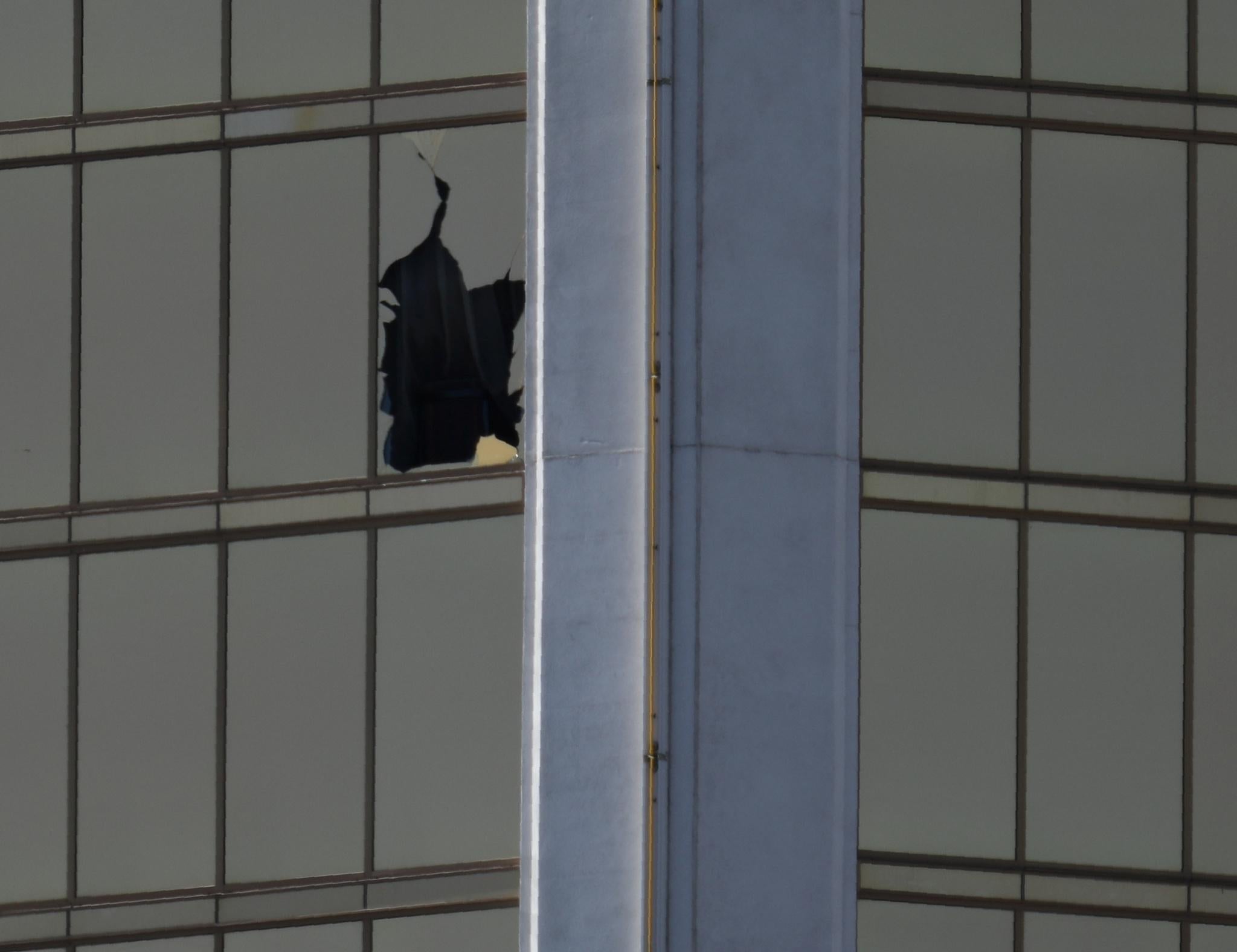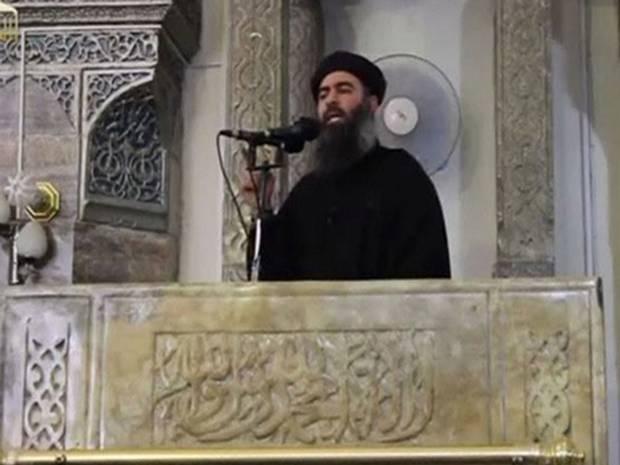Stephen Paddock: Isis gives Las Vegas gunman jihadi name in new claim amid widespread scepticism over terror links
Terror group doubles down on claim after brother says shooter was not an extremist and police find no link
Isis has doubled down on its claim of responsibility for the Las Vegas shooting, bestowing a jihadi name on the gunman amid widespread scepticism.
Investigators say they have not yet found any evidence of a link between the terrorist group and Stephen Paddock, a 64-year-old retired accountant known for gambling.
In a new official claim of responsibility, Isis claimed Paddock was responding to its leader’s call for intensified attacks against Western countries bombing its territories in Syria and Iraq.
“Responding to the call of [Abu Bakr al-Baghdadi] to target the states of the Crusader alliance, and after careful observation of gatherings of the Crusaders in the US city of Las Vegas, one of the soldiers of the caliphate (Abu Abd al-Bar al-Amriki, may Allah accept him) lay hidden armed with machine guns and various ammunition in a hotel overlooking a concert,” it said.
“He opened fire on their gathering, leaving 600 killed and injured, until his ammunition was finished and he departed as a martyr.”
Abu Abd al-Bar al-Amriki is an Arabic “kunya”, which Isis uses to publicly name selected terrorists after particularly deadly or high-profile attacks, while honouring them in propaganda statements.
Used widely without extremist links in the Middle East, kunyas are also used as war names by Isis fighters and those in direct contact with the group, such as the cell that carried out the Paris and Brussels attacks.

The statement, issued from Isis’ central propaganda unit, was followed by widespread celebration on unofficial agencies including the al-Battar Foundation, which released a video hailing “revenge” on the US that used footage from local television reports.
But even among Isis supporters, some were unconvinced. In a Telegram chat used by Isis “fanboys” accessed by researcher Raphael Gluck, one jihadi asked for proof.
“The question I keep asking is how to confirm he was indeed a khilafa [caliphate] soldier and not a random actor,” wrote the man, under the name Abdul Abdul.
“I wish dawla [state] will just give us one proof to shatter everything.” Another Isis supporter dismissed his question, urging him to “believe the Muslims”.
Isis first named Paddock as a “soldier of the Islamic State” in a brief statement issued within hours of the shooting, which killed at least 59 people and wounded more than 500.
In an unusual move potentially recognising doubt over its claim, the group’s Amaq news agency swiftly released a separate statement claiming Paddock had converted to Islam several months ago.
Police said they believed Paddock acted alone but were at a loss to explain what might have driven him to carry out the deadliest massacre in modern US history.
“We have no idea what his belief system was,” Clark County Sheriff Joseph Lombardo told reporters. “I can't get into the mind of a psychopath.”
His brother claimed he was “not an avid gun guy at all”, with “no religious affiliation, no political affiliation” or history of mental illness.
Eric Paddock told CBS his brother was a gambler, saying: “The fact that he had those kinds of weapons is just...where the hell did he get automatic weapons? He has no military background or anything like that.
"He's a guy who lived in a house in Mesquite and drove down and gambled in Las Vegas."

Paddock checked into the Mandalay Bay Hotel and Casino on Thursday, taking a room on the 32nd floor overlooking what would be the site of the Route 91 Harvest Festival.
He knocked out two windows to create sniper's perches used shoot torrents of bullets down on the crowd of 22,000 people, many of whom ducked to the ground unaware they were being shot at from above.
The bloodshed ended after a police Swat team closed in on his room, with Paddock shooting a hotel security officer through the door of his two-room suite and killing himself before officers burst in.
Police said 23 guns were found in Paddock's hotel room, along with more than 10 suitcases.
Two of the weapons were believed to have been modified to make them fully automatic, and police are investigating where Paddock purchased them.
At Paddock's home around 80 miles away in Mesquite, authorities found 19 more guns, explosives and thousands of rounds of ammunition.
Several pounds of ammonium nitrate, a fertiliser used to make explosives, were in his car.
Authorities believe Paddock acted alone. While he appeared to have no criminal history apart from a minor traffic offence, his father was a bank robber who was on the FBI's most-wanted list in the 1960s.
Investigators have seized computers and obtained a warrant to search a second house connected to the gunman in Reno, Nevada.
A spokesperson for the FBI said no link to Isis had yet been found in the ongoing investigation, with analysis of Paddock’s phone and electronic devices incomplete.
“As this event unfolds we have determined to this point no connection with an international terrorist group,” special agent Aaron Rouse added.
“As this investigation continues we will continue to work with our partners.”
Shiraz Maher, deputy director of the International Centre for the Study of Radicalisation and Political Violence (ICSR), warned that there was “absolutely no profile” for an Isis terrorist, with the known examples in Britain alone coming from different background ranging from criminals to graduates, the unemployed and the affluent.
A growing body of research indicates that recent converts that those with lower levels of Islamic knowledge are more easily convinced by Isis ideology.
In detailed guidance issued to followers in propaganda magazines, Isis has urged those launching attacks to clearly state their allegiance by carrying flags or leaving written or recorded video statements.
Paddock does not appear to have done so and his suicide is also a departure from the methods of most Isis terrorists, who normally seek “martyrdom” in suicide bombings or by forcing security forces to kill them.
The wording of Isis’ claim is similar to other attacks that have been inspired, rather than directed, by the group and there is no indication of what – if any – communication might have taken place.
In analysis passed to a member of the US House of Representatives’ Homeland Security Committee, terrorism analyst Michael S Smith said he could not rule out the claim being wrong, but added: “If Isis’ claims of responsibility for the attack in Las Vegas are false, this would be the first deliberate false claim for an attack in the West issued by the group.
“In most instances where Isis has claimed attacks in the West, the responsible terrorists have either explicitly attributed their attacks to the group…or investigators have uncovered some link, ranging from correspondence between responsible terrorists and parties in the ‘caliphate’ to online activities reflecting the consumption of propaganda.”

Mr Smith said that while a false claim would bolster Isis’ attempts to terrorise the US, the potential damage to its credibility could be deemed too high as it suffers huge territorial losses in Iraq and Syria.
He noted that the multiple claims and chatter in prominent unofficial outlets and terror channels indicated a “high level of confidence” among Isis members linked to the group’s external operations division.
The Las Vegas shooting came days after Isis released a 46-minute speech purporting to be from Baghdadi, who urged followers to “intensify one attack after another against the infidels”.
It claimed Paddock was directly inspired by the speech, as well as an Isis supporter who killed two women in a stabbing attack in the French city of Marseille earlier on Sunday.
Isis was also linked to a car and knife attack in Edmonton, Canada, where a police officer found a flag used by the group in the perpetrator's car.
Isis has released several rounds of detailed guidance on how to carry out mass casualty terror attacks, including how to obtain guns and naming concerts as a prime target.
An issue of its English-language propaganda magazine released in May said it was “very simple” to obtain firearms in the US, directing followers to gun shows and online dealers.
The same issue named concert halls and entertainment venues among target locations because of the density of contained crowds, citing the “blessed” massacres at the Bataclan during the Paris attacks and Omar Mateen’s shooting at the Pulse nightclub in Orlando as “outstanding” examples.
Security officials and experts have long warned that Isis will seek to maintain momentum and legitimacy through terror as its so-called “caliphate” dwindles in Iraq and Syria.
The group's claims can be difficult to confirm or deny, with a story in its al-Naba propaganda newspaper alleging that explosives were planted at Charles de Gaulle airport recently disproved.
Conversely, Isis has also failed to claim responsibility for several atrocities carried out by potential supporters, including Saturday’s attack in Edmonton, a deadly knife rampage in Hamburg and terrorist stabbing in Finland.
Join our commenting forum
Join thought-provoking conversations, follow other Independent readers and see their replies
Comments
Bookmark popover
Removed from bookmarks